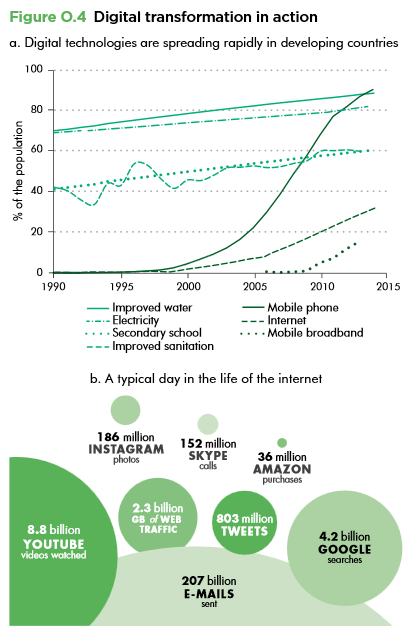In the last 10 years, the global Internet population has grown from 1 billion to 3.2 billion. The number of people owning a mobile phone worldwide has now trumped the number of people with electricity, clean water or sanitation. Yet, the impact of such large scale connectivity isn’t always positive, according to a new World Bank report.

It would appear, from this research that the web is increasing digital inequality, widening rewards for those with skills and access, whilst upping the penalties for those without connectivity.
It’s safe to say that the Internet doesn’t necessarily spur competition. There’s just one Google and one Facebook because the average user doesn’t see the point of using the second-best search engine or the second-best social network, because the leading ones are free and everyone else is using them too.
Whilst digital technologies have been spreading, digital dividends have not, the report states. “The better educated, well connected, and more capable have received most of the benefits – circumscribing the gains from the digital revolution.”
The World Bank says we need to expand connectivity access, but also develop “analog complements” to go along with large scale advancements. That includes regulations that create more competitive markets, skills that allow more entrepreneurs to seize opportunities and accountable institutions that empower citizens rather than hobble them.
The report adds: “Digital development strategies need to be considerably broader than IT strategies.
“To bring the largest benefits, countries need to create the right environment for technology. When analog complements to digital investments are absent, the development impact will often be disappointing. But when countries build strong analog foundations, they will reap ample digital dividends – in faster growth, more jobs, and better services.”

Comments are closed here.